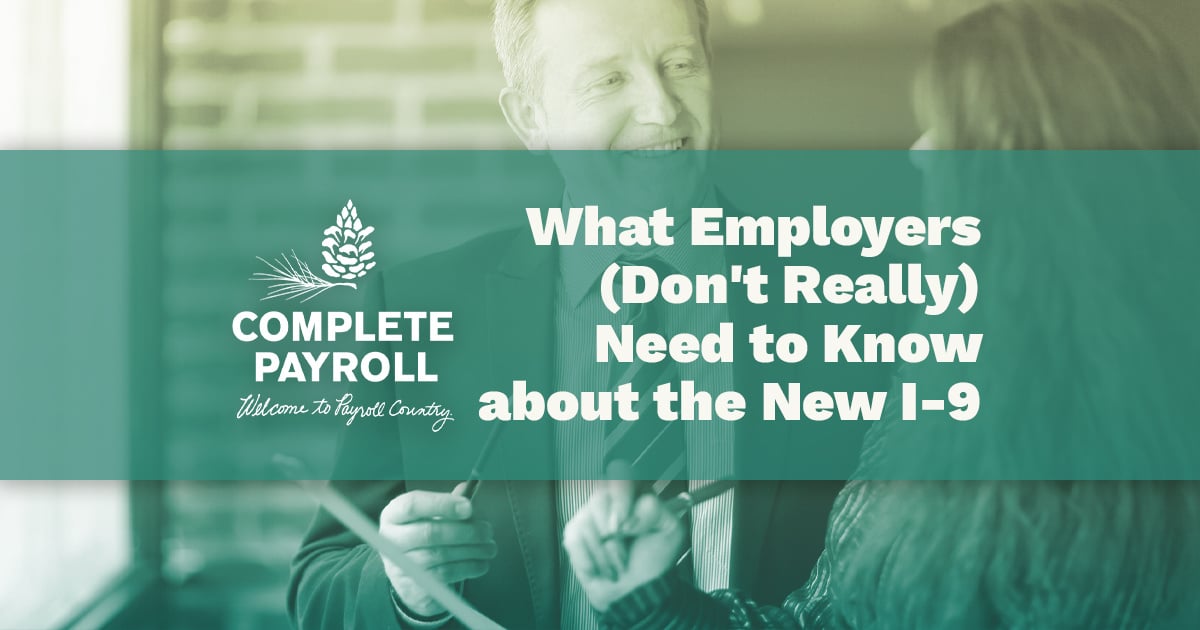New Sexual Harassment Laws to Take Effect in New York State

Written by Complete Payroll


New York State's 2019 budget includes a host of new provisions aimed at preventing sexual harassment in the workplace.
Policy and Training
The new law requires all employers to adopt and distribute a sexual harassment prevention policy and provide interactive sexual harassment prevention training to all employees. The law goes into effect October 9, 2018.
The state will be developing a model policy and a model training, so employers will not need to create their own. However, they will need to administer both the policy and the interactive training. Employers do have the option of creating their own policy and training program, as long as it meets the following requirements set by the state:
- Statement prohibiting sexual harassment;
- Examples of prohibited conduct that would constitute sexual harassment;
- Information concerning the federal and state statutory provisions concerning sexual harassment and remedies available to victims, along with a statement that there may be additional applicable local laws;
- Standard complaint form;
- Procedure for the timely and confidential investigation of complaints;
- Statement informing employees of their rights of redress and all available forums for adjudicating sexual harassment complaints administratively and judicially;
- Statement that sexual harassment is a form of employee misconduct, and that sanctions will be enforced against individuals engaging in sexual harassment and managers and supervisory personnel who knowingly allow such behavior to continue; and
- Statement that retaliation against individuals reporting sexual harassment or who testify or assist in any proceeding is unlawful.
Interactive Training Requirements (the state's definition of "interactive" is not yet known):
- Explanation of sexual harassment;
- Examples of conduct that would constitute unlawful sexual harassment;
- Information concerning the federal and state statutory provisions concerning sexual harassment and remedies available to victims; and
- Information concerning employees’ rights of redress and all available forums for adjudicating complaints.
No Mandatory Arbitration or Confidential Settlements
In addition, the budget prohibits any contract provisions that require arbitration for claims of sexual harassment are prohibited. Any such provision in a contract entered into after July 11, 2018, will be null and void. The rest of the contract will remain enforceable, assuming it was drafted correctly. However, this provision of the new law may be unenforceable under the Federal Arbitration Act.
Until this question is resolved, the state encourages employers to operate as if contract clauses that require arbitration of sexual harassment claims will not hold up in court or to consult with legal counsel before continuing to use them.
Confidential settlement agreements with respect to claims of sexual harassment are also prohibited, unless a confidential agreement is the preference of the person who brought the claim. If the claimant does not want confidentiality, employers will not be able to include language that requires it. This provision of the law also takes effect on July 11, 2018.
Protections for Non-Employees
Non-employees—such as vendors, contractors, and consultants—now have the ability to file a complaint with the Division of Human Rights if they feel they have been sexually harassed in an employer’s workplace. This expansion of the law has already taken effect.
A recent conversation with an employment attorney
We recently held a conversation with Kevin Wicka, an employment attorney for The Tarantino Law Firm in Buffalo, N.Y. about sexual harassment in the workplace - including how employers can handle situations, protect themselves from liability and even attempt to prevent it in the workplace. You can watch the video below or click here to read the transcript from the conversation.
New York State has issued a new law that requires all employers to adopt and distribute a sexual harassment prevention policy and provide interactive sexual harassment prevention training to all employees. The law goes into effect October 9, 2018. The state will be developing a model policy and a model training, so employers will not need to create their own. Click here to be notified when the state releases this model policy to help ensure your compliance.
















 Get Instant Blog Notifications
Get Instant Blog Notifications


